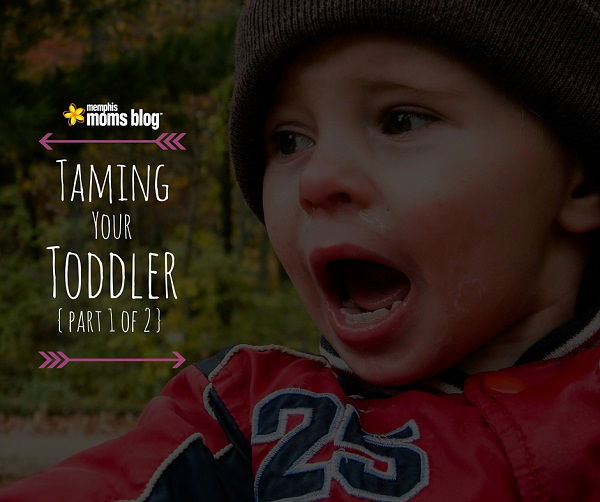Taming Your Toddler {Part 1}
Emotion Coaching
There’s a reason the twos (or threes, or fours) have been called “terrible.” Emotions rule a toddler’s life like Britney Spears ruled the world of mental breakdowns in 2007. While we can’t completely eliminate tantrums like the princess of pop eliminated her hair, there are things we can do to tame our toddlers.

Mental health professionals use the term emotional intelligence to refer to one’s ability to recognize, understand, and manage emotions. We can teach our toddlers to be emotionally intelligent through what psychologist John Gottman calls emotion coaching. This involves recognizing the emotion your child is experiencing and verbally reflecting that emotion back to her. In this way, you are giving your child the attention, understanding, and validation she craves. You are also teaching her to be aware of her own emotions, process her feelings, and problem solve. We all want to feel understood and validated, and that’s no different with our toddlers.
Let’s say, for example, you are in a restaurant with your 2-year-old, 3-year-old, and 6-month-old (this is my family; we probably should’ve avoided eating out all together, but I love Mexican food, and not even two tantruming toddlers can stop me from eating it). Let’s also say your 3 year old starts impulsively ripping open sugar packets (several at a time) and shoving them into her mouth (this did happen). As an emotion coaching parent, your dialogue would go something like this:
Mommy: I know you’re hungry. Please put down those sugar packets, though.
Toddler: (flailing and producing high notes like a Mariah Carey vocal) NOOOO!!! WHYYYYYYY?!?! BUT I WANT TO EAT SUGARRRR!!!
Mommy: (empathetic) You feel mad because you can’t have the sugar.
Toddler: I’m mad. I just wanted to eat sugar for dinner.
Mommy: Aw, sweetie, you feel disappointed because you can’t have it. How about we eat some chips while we wait?
I’m not sure tortilla chips are any healthier than sugar packets, but that’s beside the point. The sentence you can use to communicate empathy and understanding usually goes like this: You feel ____________ because _____________. You feel sad because you miss daddy. You feel worried because we’re doing something new. You feel mad because she took your toy. You feel happy because you like that music. You can’t reason with a child (or an adult) that is emotionally aroused. The part of the brain in charge of reasoning is actually inactive during times of intense emotional arousal. You can, however, create connection by turning toward her in her bid for attention (Gottman). This does not only create emotional intelligence, it allows your toddler to deescalate and choose to act more reasonably.

This isn’t a magic formula to end all of your toddler woes, but as a mom of three girls under 4 in a house where emotions run high, I can attest that it is very helpful. Once you’ve started the dialogue about emotion, revisit it often. Your kids will talk openly with you about how they feel and anger and frustration are greatly reduced on both ends. In the event that emotion coaching doesn’t work, you could always shave your head to prove a point.
Note: While it’s not likely Britney will read this, I don’t want to offend her. But just in case, I’ll use my emotional intelligence: Britney, you feel sad and angry when people refer to this period of your life. It’s hard to be famous! Good for you for getting back on track! Your hair has grown back very nicely.
For more information on this topic, Raising an Emotionally Intelligent Child by John Gottman is a must read!
Stay tuned for Taming Your Toddler {Part 2} tomorrow morning!!









